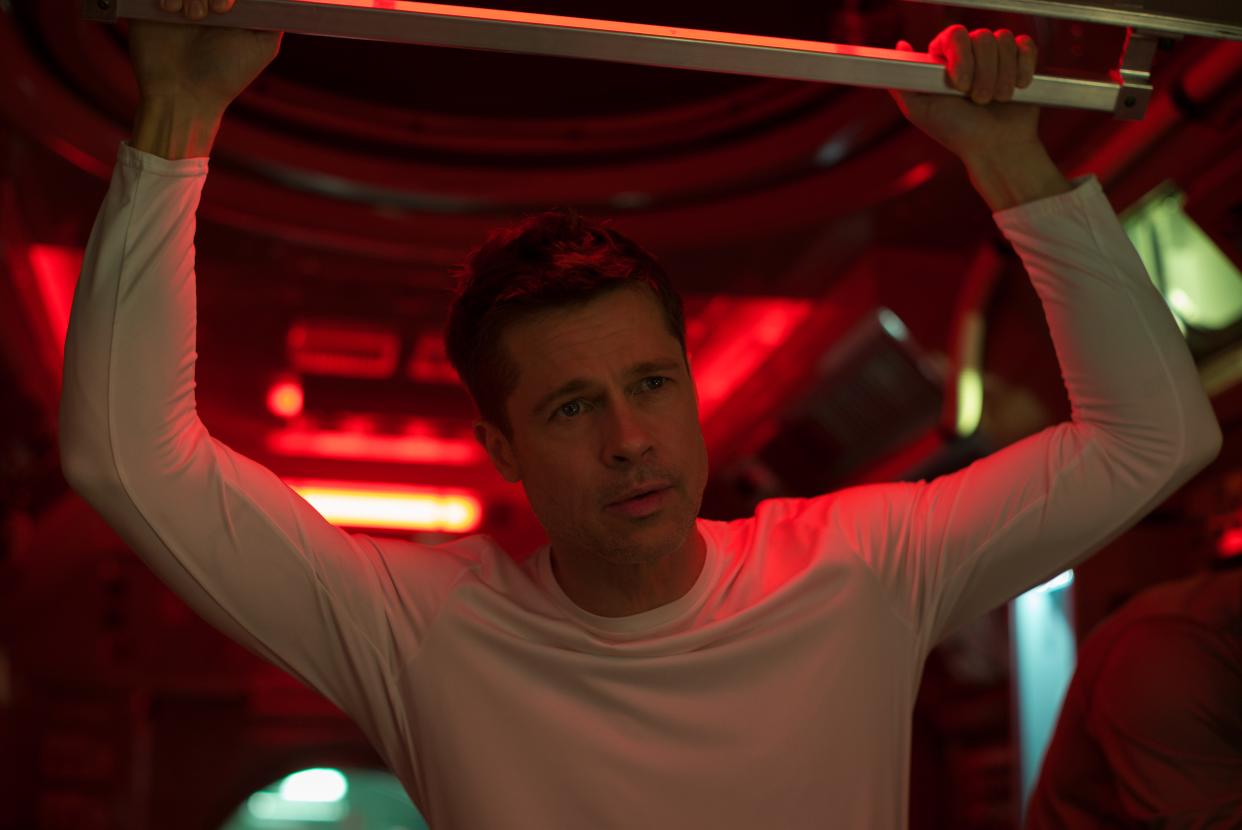There’s a reason for Brad Pitt’s portrayal of a sulky astronaut in ‘Ad Astra’

SINGAPORE — Actor Brad Pitt is gaining rave reviews for his portrayal as a sulky astronaut in search of his father in outer space. This is the premise for the film Ad Astra, which was spearheaded by writer and director James Gray, and featuring a stellar cast of Liv Tyler (remember Armageddon?), Ruth Negga and Tommy Lee Jones.
READ MORE:
REVIEW: 'Ad Astra' brings you on an audio tour de force of outer space
Should I watch Brad Pitt's space movie 'Ad Astra'?
But did you know, the idea of the Ad Astra was first discussed around the year 2011? James shared in a statement to Yahoo Lifestyle Singapore that the idea took years to be refined. “I had read about the planned Mars mission which is for 2033. If they missed that window, they were in trouble because you know that’s when the orbits of the planets are as close as they can be, but the trip would still take a year and a half. They were looking for a group of astronauts, four or five astronauts that would have to be together in an area, an area scarcely larger than the room we would be in now, and that's kind of difficult. They had to find people who you know were okay with limited social interaction, who were okay essentially being in a state of some kind of solitary confinement.”
So the portrayal of a ‘sulky’ astronaut was in tandem with the basis of living in an environment akin to solitary confinement environment. That said, the use of little to no audio effects too, play an important part in the world of space. And back to Brad, who plays Roy, the astronaut who travels to Neptune, James felt that his main lead character had to be very good at convincing themselves to be alone, to be able to grasp the meaning of loneliness.

“Brad's character was very personal to both Brad and to me. We were very much in-sync about who this guy was and is, and really that's to say he's a part of us. So the question is, how much of us do we reveal? We're contradictions of course, but in a movie, it’s like pop psychology. You have to be a little more consistent so you have to know how much of yourself that you can reveal. What moved us both was this idea that you can choose to be alone, but when you're forced to be alone, you have to confront it and that becomes loneliness,” the director adds.
But being alone and loneliness are not the same thing: “I can choose to go to dinner by myself but I'm still among people. True solitary confinement - true loneliness - that's truly something to be feared, and Brad and I loved that idea that someone can convince themselves that they wanted to be alone, but actually that's not even true; and when he's finally confronted with it, he realises how much he needs other people, how much he needs the Earth.”
In an interview with CNet, James revealed that he had used less green screen to cut down the need for flashy visual effects. Putting Brad and his other cast members in solitary environment pushed the actors further. “Actors need the environment and when you rob them of it - in this case for Brad’s character from mostly of other actors - he can't interact and won't interact with others. You're then instantly putting your actor in a very challenging position. The hardest thing is to maintain the human element, which really is some sort of weird lesson for us. The hardest part is (showing) the beautiful imperfections of people,” James shares.
Ad Astra opens in cinemas near you.
Follow Yahoo Lifestyle Singapore on Facebook.



